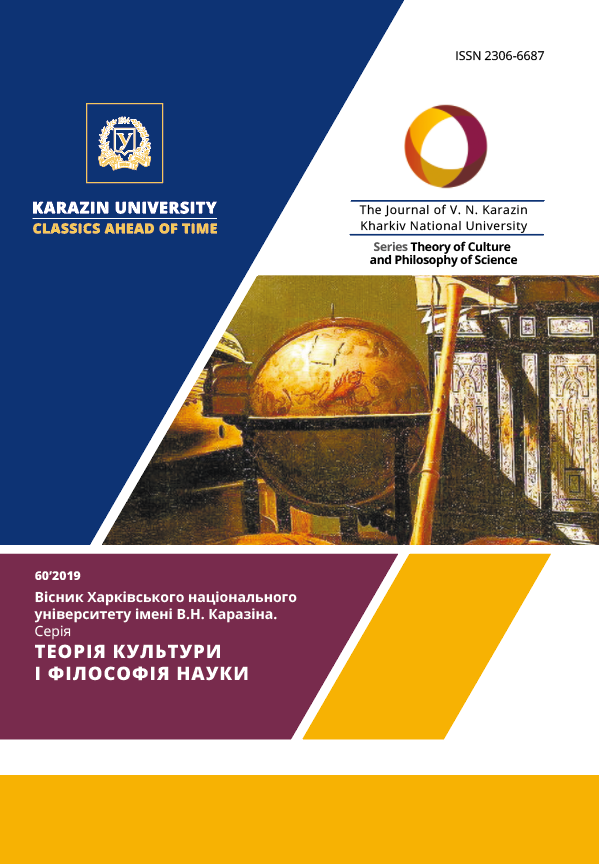Logic of the confucianist discourse and philosophy of Imanuel Kant in the modern context
Abstract
The paper suggests an analysis of the Confucian discourse and its logic through the prism of the M. McLuhan’s conception of the visual and audio-tactile cultures. Parallels between the Confucian ethics and that of I. Kant are led. There is asserted that the Confucian and Kantian ethics developed in different outlook context and on different cultural grounds, the latter doesn’t prevent them to pull together their positions in modern culture. In classical Confucianism we have the case of magical thinking, that exceeded from the so-called organismic outlook, according to which the Universe is something like a gigantic organism, every person, animal or other living creature is some sort of organ of this organism. Every organ has its proper place and function, the same concerns humans who, being parts of the Universe organism, have also their proper place and duties or, how it was called in China, their proper Tao. When everyone follows one’s tao anything in the Sublunar world goes in piece and harmony. All problems of social and natural character are caused by that some people got away from their tao, from their duties. Humans can become the humans only in society where some hierarchies and duties are supposed and members of the society are obliged to follow them. That means it is necessary to follow duty in order to be human.
The philosophy of Kant, unlike that of Confucius, developed in quite another context, the context of rational culture of the visual type of perception. The result the Kant’s philosophy came in the sphere of ethics are similar to those of Confucianism. Both Kant and Confucianism affirm variants of the ethics of duty. But negating cosmological metaphysics, Kant deduces the latter from the reason itself, the famous categorical imperative prescribe to behave in accordance with norms that could become foundation of common legislacy. From here the problem of transition from the reason to outer reality arises. The problem, from attempts to solve that as a matter of fact, all later the so-called German classical philosophy developed. However, the answers given in its frame turned out to be not legitimite in the frame of the visual culture. In this context the ideas of Confucianism may be an alternative foundation to the ethics of duty.
Downloads
References
І-цзин. Книга змін// Харків, «Фоліо», 2018. – 284 с.
Кант Імануель. Критика практичного розуму. – Київ: «Юніверс», 2004. – 240 с.
Конфуцій. Вислови// Харків, «Фоліо», 2014. – 224 с.
Мак-Люэн Маршалл. Галактика Гутенберга. – Киев: Изд-во «Ника-Центр», 2004. – 432 с.
Маслов А. А. Китай: колокольца в пыли. Странствия мага и интеллектуала. - М.: Изд- во «Алетейа», 2003. – 376 с.
Фэн Ю-лань. Краткая история китайской философии. – С-Пт.: Изд-во «Евразия», 1998. – 376 с.
Жюльен Франсуа. Путь к цели: в обход или напрямик. Стратегии Смысла в Китае и Греции. – М: Московский философский фонд, 2001. – 360 с.




